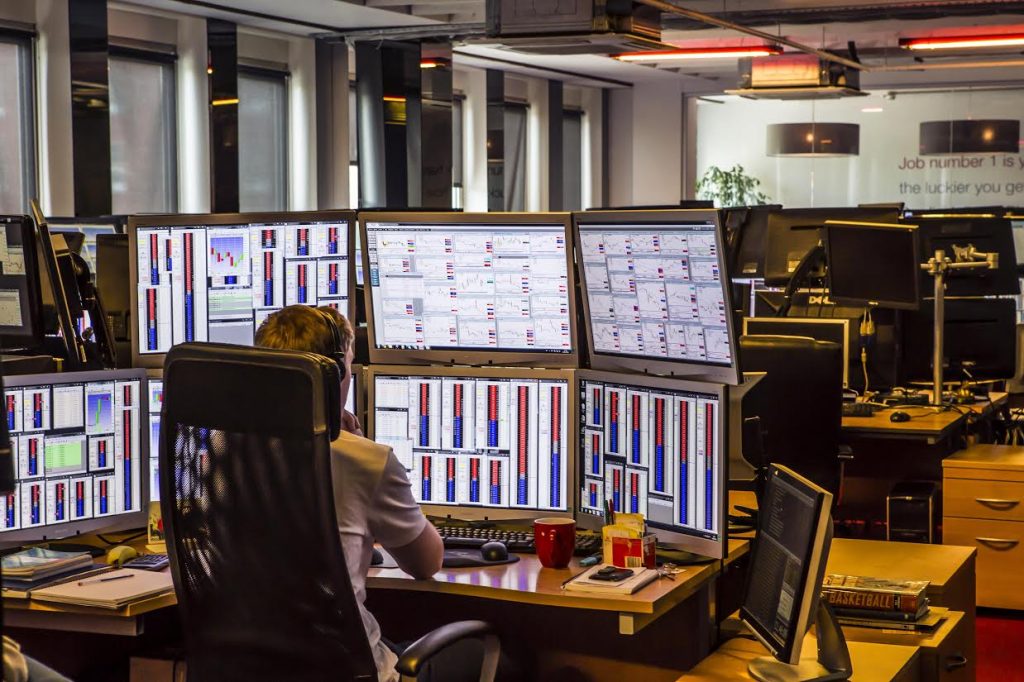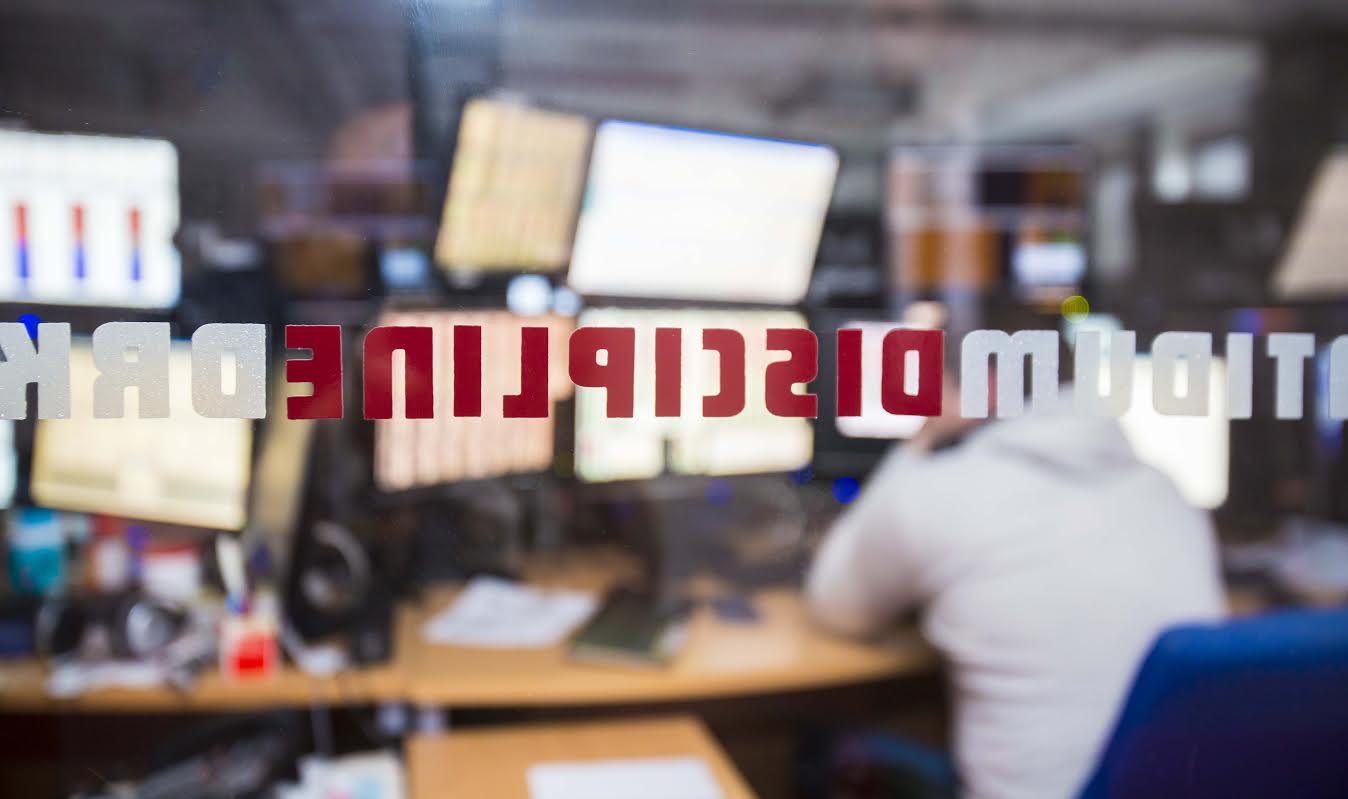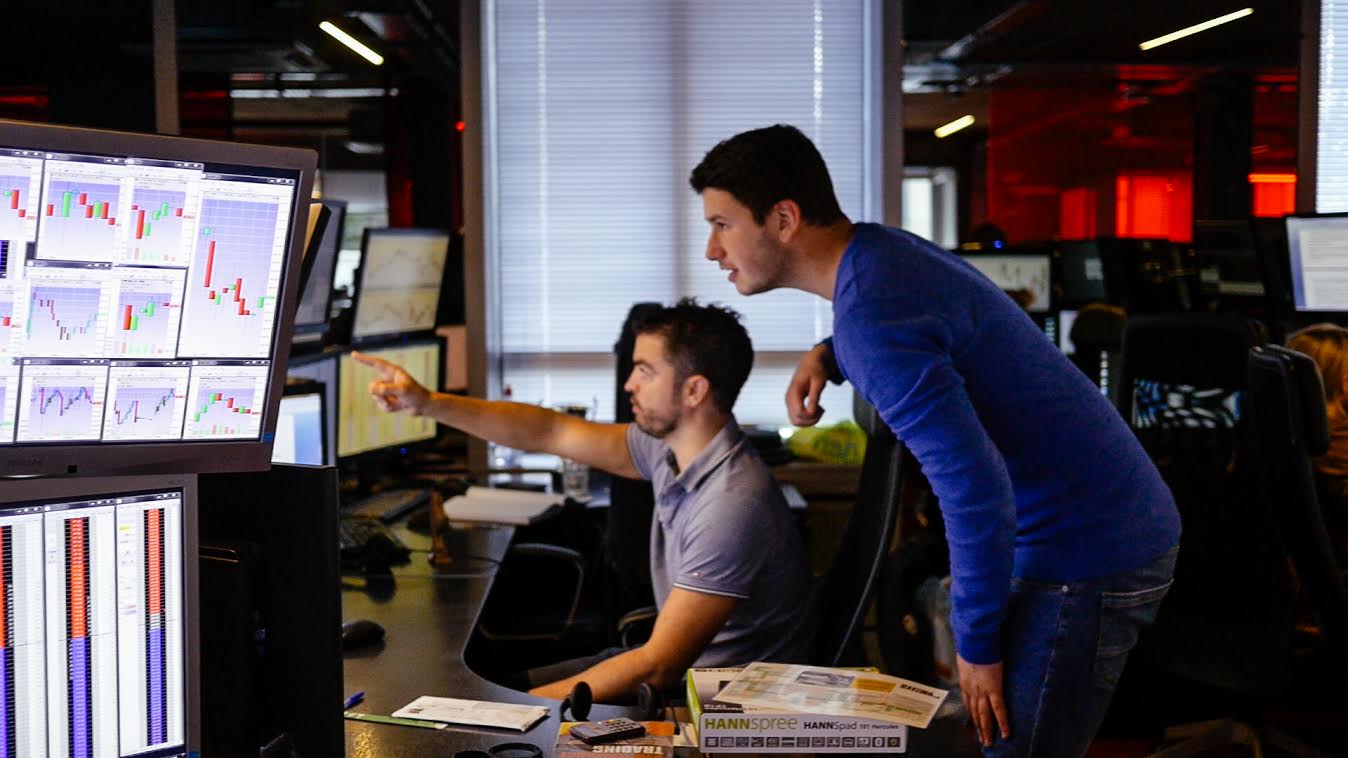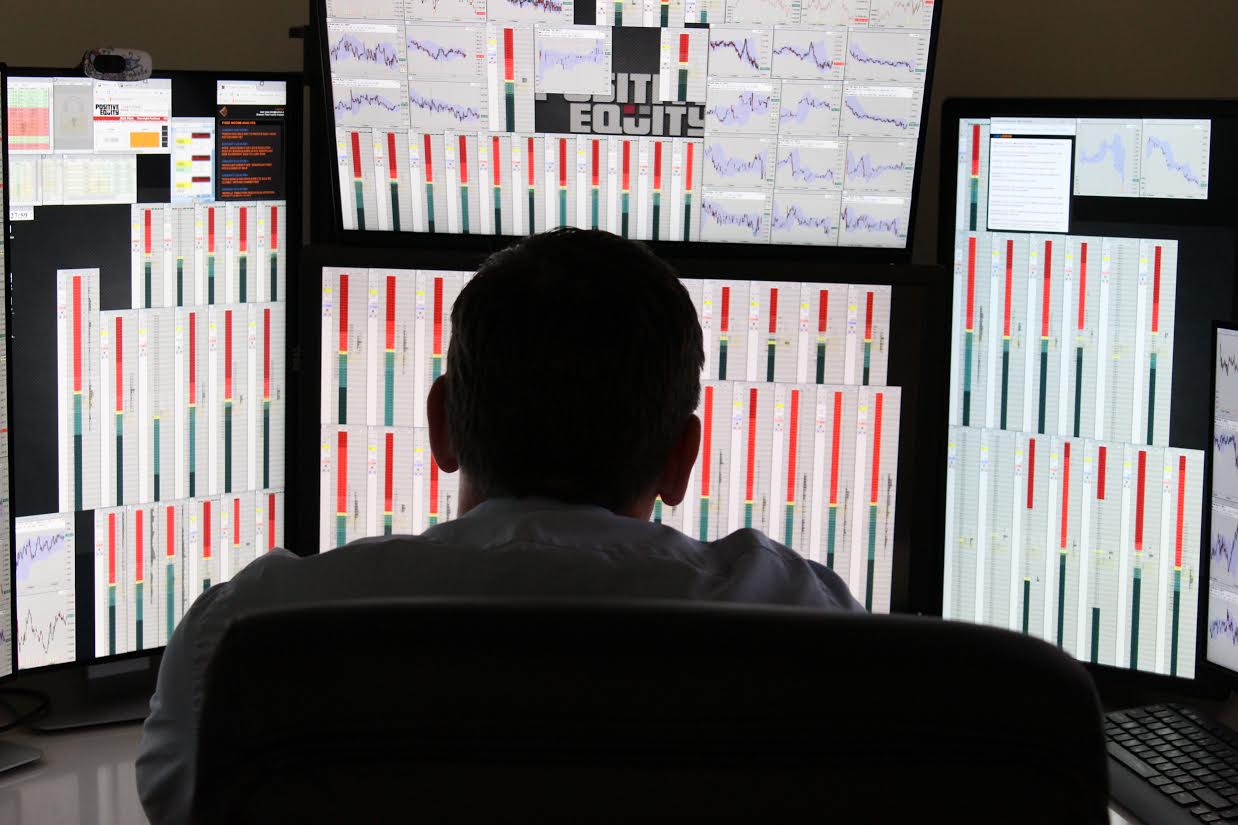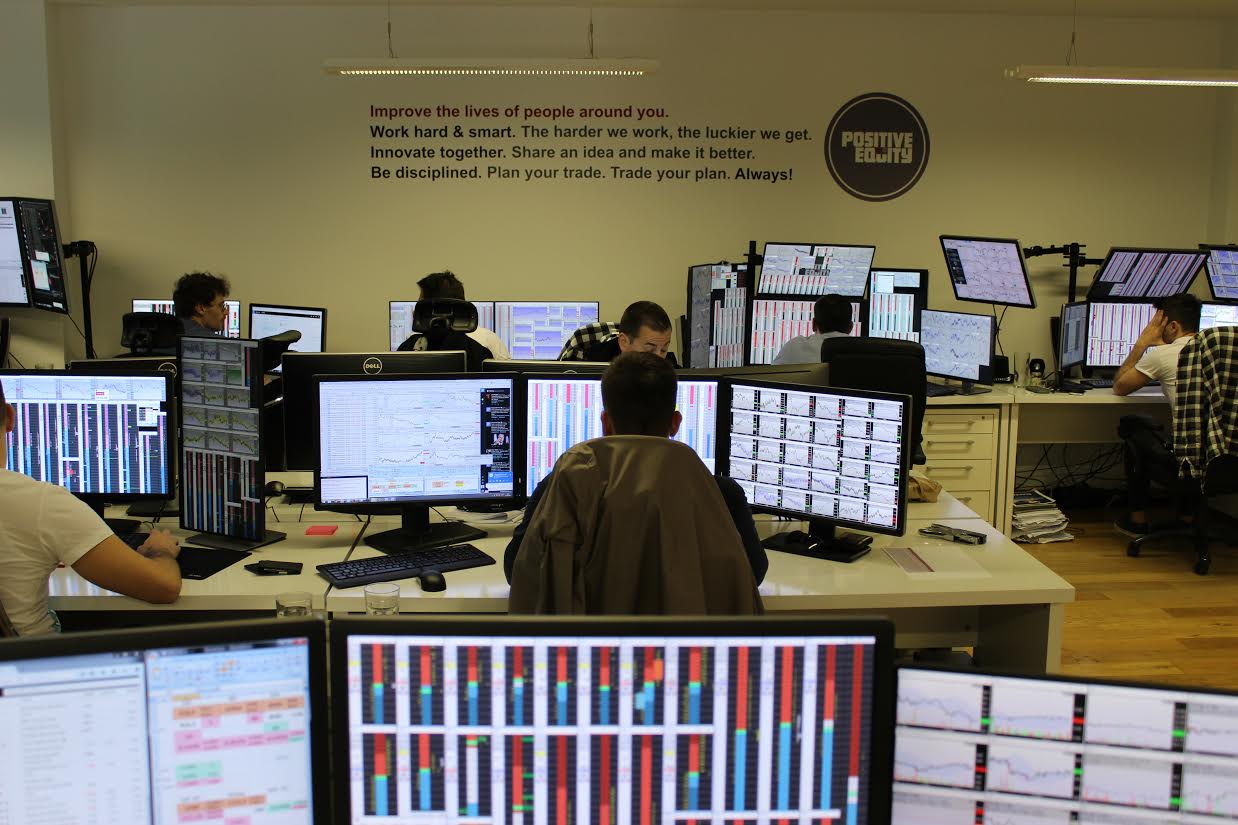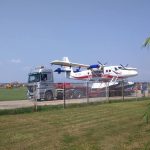April 9, 2020 – Nowhere has the corona rollercoaster been more volatile than on the stock markets. So how is life as a trader in the sunshine in the Dalmatian capital of Split, and who does all this compare to 2008 and 9/11?
The stock market is a brave place to be dabbling in right now with the global corona rollercoaster, but for some it is a way of life and full-time job. I am very grateful to Jason Berry of Positive Equity for finding the time to tell us how all this madness looks from the trading floor in self-isolation in Split.
Some people have nothing to do at the moment as they sit out this isolation, others have never worked harder. Which is it for you? Tell us about your day.
We haven’t been this busy since 2008. Our business is inversely correlated with the general market cycle. This means that when markets are up and the bulls are in charge, our daily grind is fairly moderate. But when fear takes over and the markets are tanking, we become exceptionally busy.
Our normal day takes part between 8 am and 10 pm. Each trader works some version of those hours. European markets open at 8am, most people at their desks 7:30, reading the news, catching up with what happened in Asia. The US markets and most major European markets are open until 10 pm. I work noon till 10 pm. They are long hours be we have lots of breaks in there, first a kava, lunch, gym, second kava, third kava, etc. it’s hard work but its quite flexible in many ways. Well, that all changed when Covid-19 started to hit the markets.
I started staying up until midnight on Sundays to see the open of Asian markets and on 4 of the last Sundays stayed up working until 3-4 am, sleep, then back up for European open, trade for 3-4 more hours, nap around 10 am to noon, then back at it until 10 pm. It was insane. The markets just didn’t sit still. They have been the busiest I’ve seen them since 2008, and not in a good way. They say the markets go up the stairs, but down the elevator shaft.
We’re now only just starting to emerge from one of the busiest months of my career. We’re all exhausted.
On a more human level, our day has changed. We used to go out to lunch or eat at a café, now we order Wolt and get coffee in a plastic cup from a machine for 3 kuna. I’ve discovered a lot of tasty restaurants: Skatula for pulled pork sambos, Maka for sushi poke bowls, Cookie Lab for croissants and OJ. We see nobody. Most of us are isolated from our families. We have a number of international traders and they can’t see friends and live alone, that’s tough. I’m putting together an Easter basket for them.
We’re lucky in that we are only wrestling with the medical and psychological aspects of this crisis whereas other folks have the financial bomb lobbed in there as well. These are very strange times we live in.
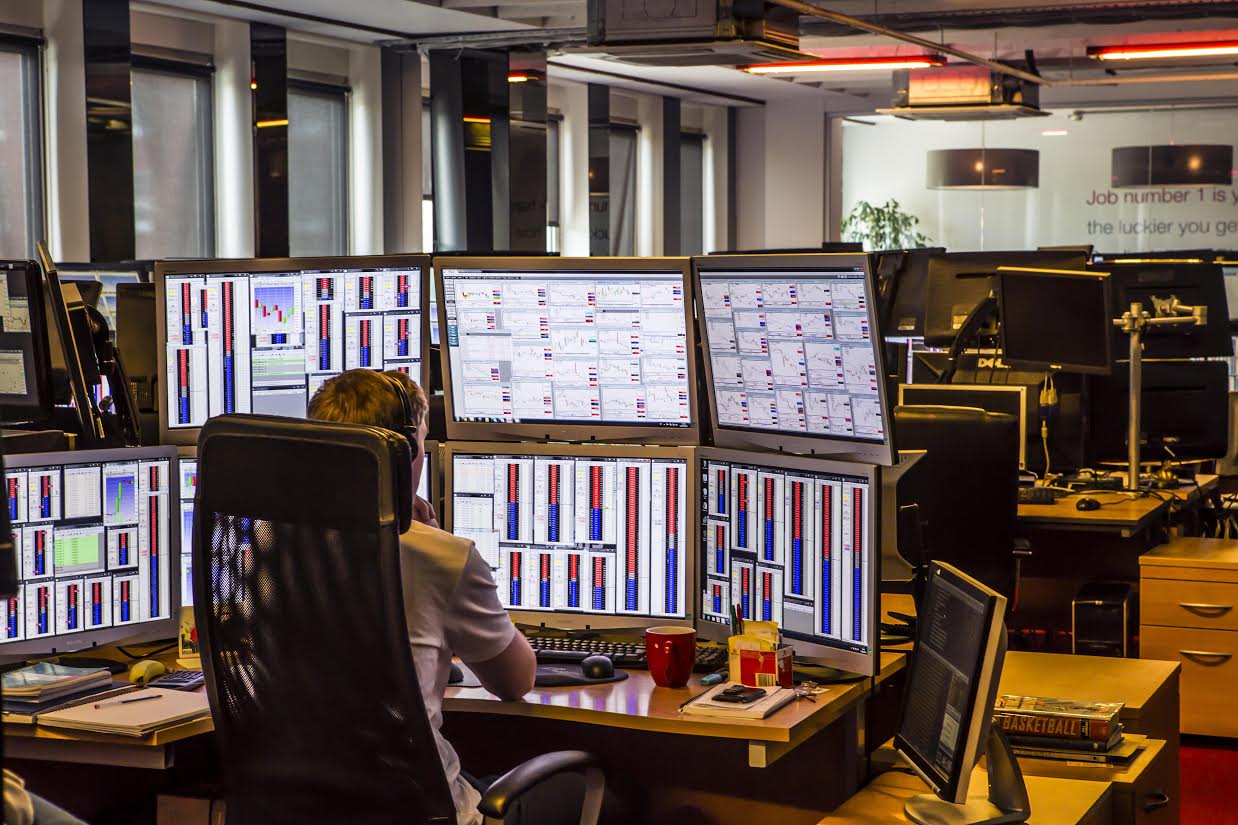
From your recent TCN interview for our expat self-isolation series, you said you picked up the corona threat very early. Give us the timeline from a trading point of view – when did things really start to affect the market.
Well, the virus arrived first in China. The China50 or top 50 stocks in China started getting smashed on January 21st. We watched for a week of carnage but after they put the quarantine into effect things stabilized and recovered a bit into February. We took note but it was still far away and not personal yet.
Then February 20 and 21st the virus spread to Europe, and Italy in particular, and we started seeing significant down moves in European indices and the US. This is when we started getting ideas that things were not OK, but still it somewhat controlled down moves. We made jokes in the office, told our friends not to travel to Asia but we were not self-isolating or anything yet. The following week changed all of that.
In the last few days of Feb and the first few days of March, panic began to hit the markets as people began to realize the economic and societal impact, and that unlike earlier outbreaks, it was deadly and wouldn’t just stay in Asia. 10 years of recovery was undone in a couple of weeks. So for us on a personal level, the indicators were when it started to hit Italy and how the markets reacted to Italy. We started to isolate the end of the first week of March. We sent home all non-trading staff, ended our interns’ 2-month internships early and reduced staff in the office. We began setting up people to work from home. One of our trainee traders returned to Opatija out of fear that he wouldn’t be able to visit his family and chose to work from there. Our IT staff member set everybody up in a frenzied week so we could operate from home. We discussed with all staff members about the need to self-isolate and began that process. But we only began that probably 10 days ahead of the Health Ministry’s official notice. Some of us were actually scheduled to go skiing in northern Italy. Thanks to my wife I didn’t go.
The rest of March was manic. We worked crazy hours. Markets were busy all day and all night as traders around the world tried to digest the information coming from WHO, Italy, Europe, and the US.
So far so good. No infections in the office or our families, thank goodness.
How does this compare to 2008?
2008 was more drawn out. But we’re early days still, so time will tell. The 2008 market crash started in March with the small investment bank Bears Stearns going bust because they had so much mortgage garbage on their books. Markets dove initially, but then recovered for much of the spring and into the summer, but then it all started up again in late summer and lasted all the way until Christmas. As traders, we were exhausted. It was months of full-on days just strapped to the desk, ordering lunch and not moving off the chair. The main carnage in the markets lasted around 4 months. At the start of the year, markets continued down but at a moderate controlled pace and then turned around March. It took the next 10 years to recover.
This time the majority of the crash has happened in a very short period of time, less than a month. I think the markets digest information much more quickly nowadays. Investors and traders react much faster, whether that is because there are more computer programs active in the markets or just because of the general digitalization of the markets away from open outcry (traders on trading floors on exchanges) which doesn’t really exist anymore. Whatever the reason, markets react a lot faster to news than ever before.
All this volatility must be good for someone. How is business?
Busy doesn’t mean good. But in general, our business has a reverse correlation to normal business cycles. It’s an odd business in that regard and an odd feeling in the office. We’re doing well but the news and personal effects on our lives aren’t. You feel melancholy. It was a similar feeling during the recession. The worst of these market shocks was the September 11 tragedy, and Covid-19 is bringing that feeling back. It’s a strange set of feelings, very hard to describe. As businesses go, we’re in a good space, no exposure to tourism, we can work remotely, and we’re in a good place of our business cycle.
With such unprecedented volatility and uncertainty, do all your instincts and training go out the window at a time like this? How has your approach to trading changed?
When markets go bananas this is when we see if all the training works. This is when traders are really tested. This is when if there are any skeletons in your closet they come out. The number one fear of our firm is that a single person will blow us up during extreme market moves. We’re happy to report that all our traders performed admirably, especially our Croatian traders. Svaka cast, momci.
Talk to us about oil prices and what might happen.
I’m not an investor so the long term picture for me is as fuzzy for me as it is for most people. Russia and Saudi are at loggerheads about how to address the loss of demand. No planes in the air, no trucks on the roads, no ships on the sea. Everything has stopped. All this while there wasn’t a real reduction in production. Then Russia said we’re not going to reduce and in response Saudi flipped them the bird and said the same thing, and so oil tanked. Now they are talking about an Opec+Russia+USA meeting. We’ll see how that turns out. Historically we’re at lows, but one never knows. It’s hard to believe you can get a barrel of oil for less than a barrel of mineral water! Opec plus Russia and the US will most likely sort something out but if they don’t, hello 10 dollars a barrel.
Your prediction of the value of the Dow this time next week, next month and next year.
I’m a trader, not an investor, but I am instructing my personal investment manager to rearrange my portfolio to a much riskier heavier on stocks portfolio. But I highly recommend anybody thinking of getting involved in the markets or investing, speak to a pro first. If not, getting involved in the markets is like gambling.
There are obviously some people buying at the moment. Which sectors are you seeing the most movement in?
The main rules of investing are buy strength. So figure out which industries weren’t smashed as much and buy those. Obvious ones are mask producers, delivery companies, and groceries, but that play is largely over. Long term, think about what industries and companies always do well. But don’t go bottom-feeding, a lot of companies will never recover from this, they were too laden with debt to start with and have no financial flexibility.
Cruise ship shares have taken a dive. Do you think they are coming back?
Again I’m not an investor, my personal opinion is that some of the best will recover, the worst will not. It was a hard business to start with. I think Zoran Pejovic hit the nail on the head with his piece on how tourism will change. People will want a lot more privacy and stay away from masses of people. Cruise ships aren’t that.
And the question we all want to know – when will all this be over?
Human nature is to overplay good news and underplay bad news. We have months of lockdown in front of us. China is only just now emerging. They were in lockdown for basically a little over 3 months. We started ours a month ago in Croatia, the UK and US just began, so there is a long road ahead for sure. China went full lockdown immediately. Croatia is 80% lockdown, unlike Italy and Spain. The UK messed around and will unfortunately pay a heavy price. The US is still messing around and will undoubtedly lead the world in a way nobody wants them to. Tragic. But the real answer is nobody really knows for sure. So hunker down, get a healthy routine, and prepare for the long lockdown. If it ends sooner, great, if not, we’ll all be prepared.
The good news is that the markets have been going up from their lows for the last two weeks. The media loves bad news stories, or rather, humans love reading bad news, so the media obliges. The market always reacts ahead of where the current situation is both on the downside and the upside. Whether that means the markets are satisfied with political, medical, and economic measures that have been taken is hard to say. For now, the markets have stabilized. If there is another move down, it will be from a resurgence in Asia, calamitous health results from the US lockdown, and a longer time frame for getting economic activity going again. The big catalyst will be the cure. Once that happens normalcy will begin to return. But until that happens the virus is here to stay, and that will have effects everywhere and specifically for us here in Croatia.
In Croatia, that recovery will be a lot longer. I don’t follow Crobex, but the short and long-term effects to an economy where corruption hasn’t been fully weeded out and where tourism is a cornerstone will be, I’m afraid to say, more severe. Until there is a cure, most people are not going to want to travel anywhere. Hunker down and do what you need to do to get to the other side.
You can contact Jason Berry via his Positive Equity website.
For the latest on corona in Croatia, follow the dedicated TCN section.

